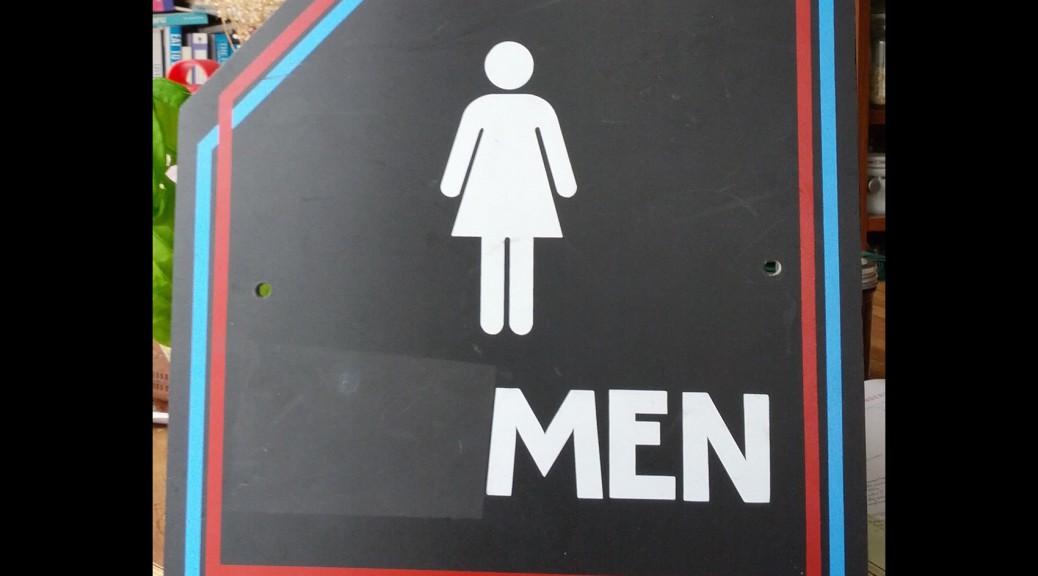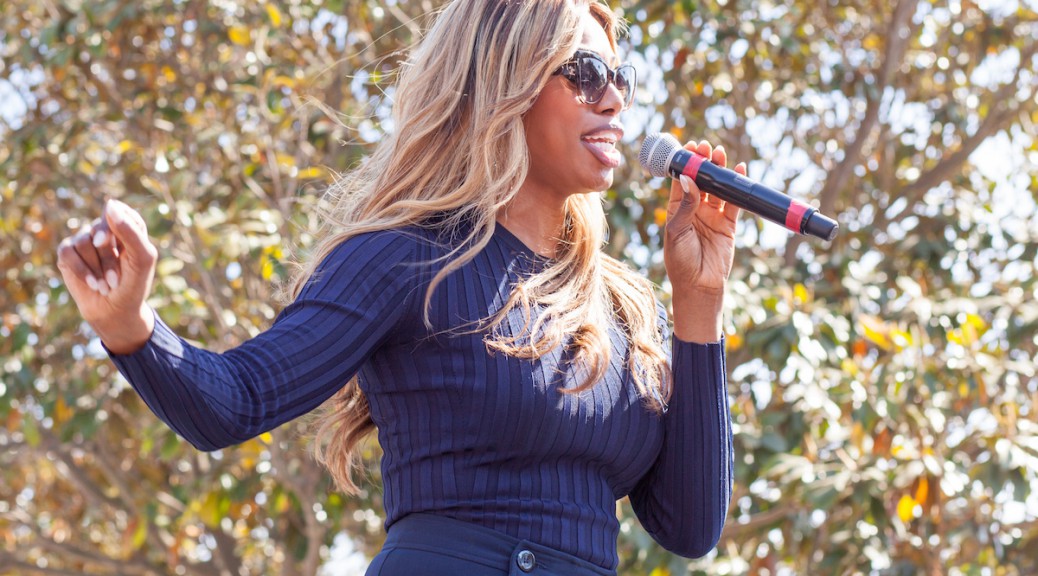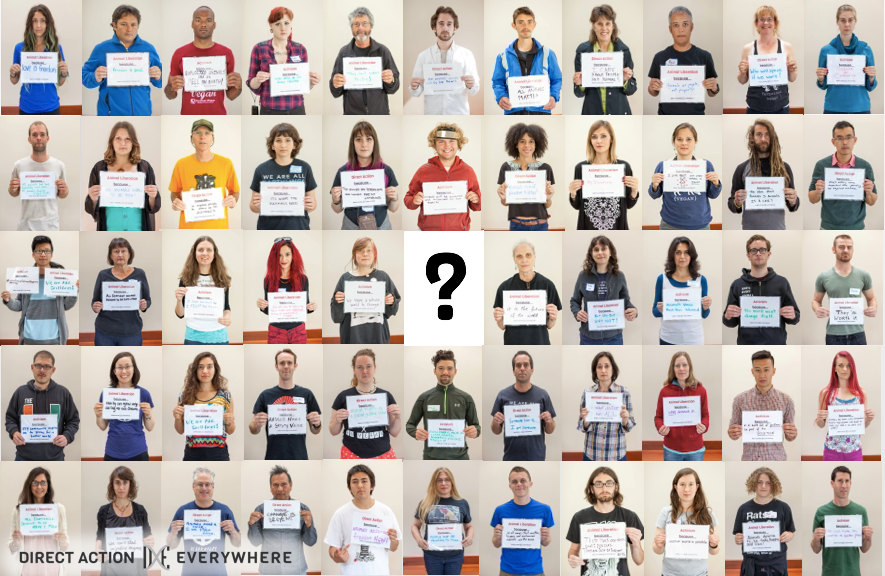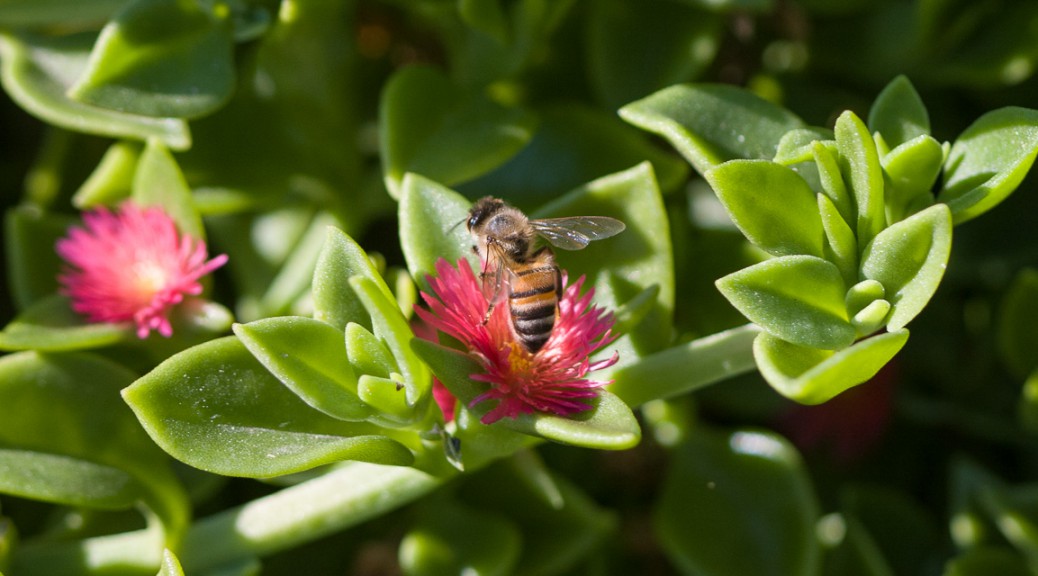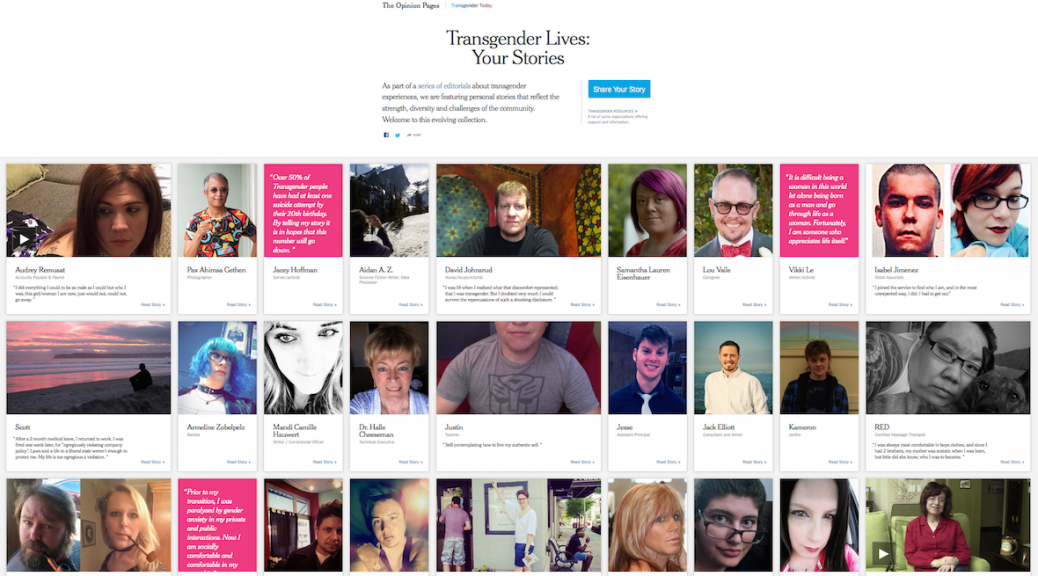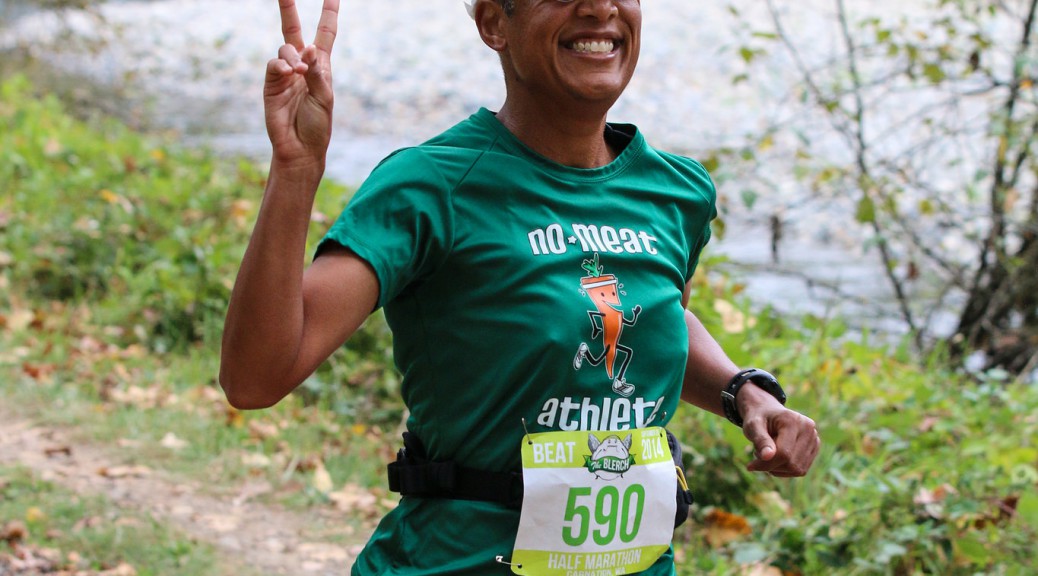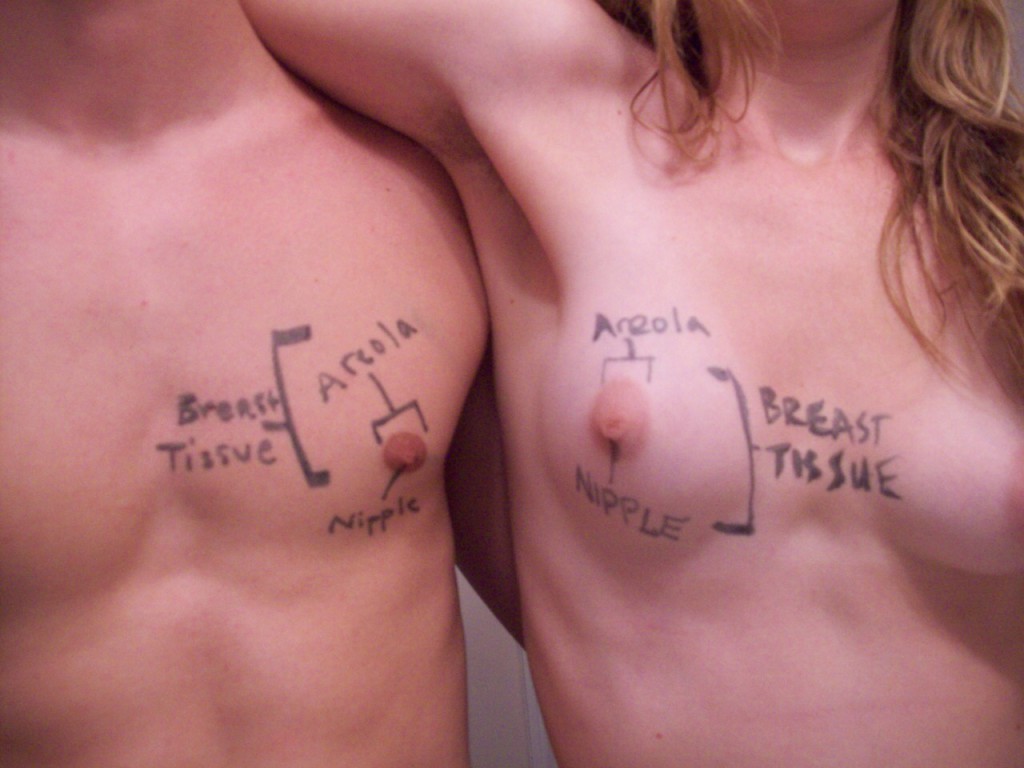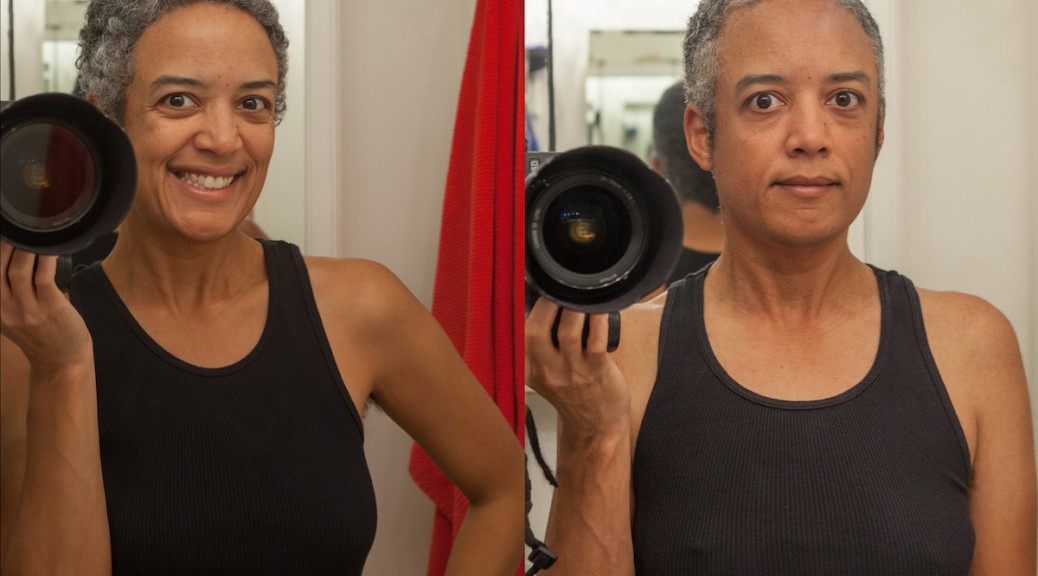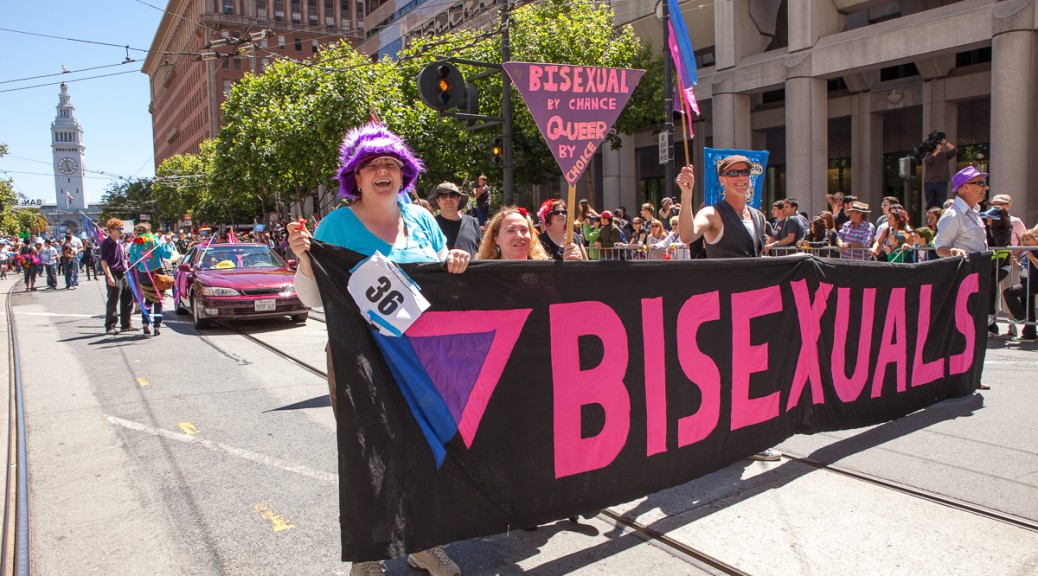I saw my essay about Gary Francione, originally published in June 2014, getting some more hits recently. I’ve decided to move it to my new blog so it will have a more permanent home where people can leave comments.
Since the publication of this essay, I no longer refer to myself as an “abolitionist vegan.” Especially since getting involved with Direct Action Everywhere, I prefer the term “animal liberationist.” Some black vegans (and others) feel that the word “abolitionist” is appropriative, especially when used by those who have no interest in combatting anti-black oppression. My preference is to use a more positive word, liberation, to convey the same end goal: Ending the property status of non-human animals. However, I still support the mission of The Abolitionist Vegan Society, whose founder and executive director, Sarah K. Woodcock, has been outspoken against oppression of humans as well as non-humans.
Other updates: I requested and received a refund for the World Vegan Summit after Bob Linden kicked out two speakers (both people of color): Sarah K. Woodcock of The Abolitionist Vegan Society and Wayne Hsiung of Direct Action Everywhere. (I believe Will Tuttle was allowed to remain on the speaker list.) Wayne’s response to his removal was what prompted me to learn more about, and later get involved with, DxE. (ETA: I am no longer with DxE.)
Without further ado, here’s the original, unedited essay.
Vegan activism and the effectiveness of the abolitionist approach
by Pax Ahimsa Gethen
Posted on June 30, 2014
This essay concerns animal rights activism; specifically, the behavior of Gary Francione, the law professor who developed the abolitionist approach to animal rights that I’ve been blogging about for the last few months. Anyone is welcome to comment, but I would appreciate it if the discussion stay focused on the specific issues in this post and not on whether veganism itself is a good idea.
This essay is long (which is why I’m hosting it on my web site rather than directly on LiveJournal), but I’m not going to start out with a summary, conclusion, or “tl;dr” because I believe it’s really important to read through the entire thing to understand the issues involved. The last thing I want to do is to turn people off of veganism or give the impression that vegans in general are extremists or crazy, though no doubt some will come away with that impression (if they haven’t already formed it) no matter what I say.
For the Facebook discussions referenced, I am including long quoted passages and links to screenshots in addition to links to the threads themselves. This is both for the benefit of people not on Facebook and also because of the very likely possibility that my comments will be deleted by Gary or one of his page moderators. The filename of each image contains the date and time (PDT) I captured the screenshot.
Contents
Background: Gary Francione and the Abolitionist Approach
I’d already been vegan for three years when I first learned about Gary Francione this year. I was going through a time of intense self-reflection, thinking about what was most important to me and where I wanted to go with my life and career. I realized that ahimsa – nonviolence – was my most important guiding principle; indeed, that’s why I named myself Pax Ahimsa. (For those who don’t know me, this is not merely a nickname; I’ve filed a formal change of name and gender petition, and have a court hearing to make it legal in a couple of weeks.) And being vegan was an integral part of reducing violence; I could not effectively advocate for peace while putting the products of suffering and death into my mouth three times a day.
So I started seeking out more vegan writers for inspiration. On Wikipedia I came across Gary Francione‘s page. At first, I thought his ideas sounded extreme. But the more of his work I read, the more he made sense: Veganism had to be the moral baseline. The book Eat Like You Care presented an especially effective, easy-to-follow argument, though I did think the numerous references to Michael Vick were excessive, even though I understood the point he was making; that Vick hosting dog fights for entertainment was, from an ethical perspective, no different from people eating animal products for pleasure. (Maybe I’ve been living under a rock, but I’m not a fan of pro sports, especially football, and had managed to miss this whole controversy.)
So in April I joined Gary’s Facebook page and began actively participating in vegan advocacy from an abolitionist perspective. I also joined the page for (and got fliers from) the Abolitionist Vegan Society, which follows his principles, although both TAVS and Gary state clearly that they are not directly affiliated with each other, which I thought was somewhat odd at the time.
Background: Will Tuttle and the World Peace Diet
Gary is a regular guest on Go Vegan Radio with Bob Linden. I’d met Bob at Earth Day San Francisco, shortly after learning of the abolitionist approach, which Bob also endorsed. I began listening to podcasts of his show, and one of them featured Will Tuttle. I was intrigued by Will, and got a copy of his book, The World Peace Diet.
I was extremely impressed by this book. It made a really good argument that our exploitation of people – women, people of color, LGBT, and others – can all be traced back to our herding culture. This seemed to fit right in with one of the core principles of the abolitionist approach, that we must reject all exploitation, of humans as well as nonhumans; racism, sexism, heterosexism, etc. were not to be tolerated in the animal rights movement.
The World Peace Diet solidly argued for veganism. Not welfare reform, not vegetarianism. Only veganism. This, again, seemed to fit in with the principles of Gary’s abolitionist approach. While reading it, I found out that Will was scheduled to speak at a weekly vegan dinner event hosted by the San Francisco Vegetarian Society. I enthusiastically signed my partner Ziggy and myself up to attend.
Background: The Kaporos campaign
While all this was going on, Gary was getting heat from other animal rights activists for opposing a campaign that opposed the use of live chickens in the Jewish ritual of Kaporos. Gary is opposed to all single-issue campaigns, but this specific campaign he claims is anti-Semitic, as it singles out a specific group of people, Jews, for doing something no different than what the vast majority of people partcipate in on a daily basis: The suffering and death of chickens.
Will Tuttle and the Kaporos campaign
So with that background, I finally come to the primary purpose of this essay. I was very moved by a passage in The World Peace Diet where Will described witnessing a cow on a dairy farm being shot in the head and helping butcher her for meat, because she was no longer producing enough milk. I posted about this on Gary’s page (link, screenshot) on June 18, the same day Will’s talk at the vegan dinner was scheduled. I had mentioned Will’s book a few times before on Gary’s page, and he had not commented. This time he did:
Gary L. Francione: The Abolitionist Approach to Animal Rights Pax Ahimsa Gethen: Unfortunately, Will Tuttle was part of the email discussion thread involving the Kapporos campaign who did not seem to have any problem whatsoever with the clearly anti-Semitic nature of the campaign and who joined the chorus of those who were unhappy that I was critical of it. But then, I wasn’t surprised.
I expressed disappointment and thanked Gary for being steadfast in his views. I also noted that I am half-Jewish myself.
When I came back from the dinner, another forum member had made a long post in the thread in which she said she had attended a talk by Will, and he had not seemed to give a clear message that veganism was the moral baseline. She also said that his Facebook page was confusing and not well-moderated. I replied:
Pax Ahimsa Gethen Well I’m not saying I fully endorse Will Tuttle’s views – as with Gary Francione, I’d never heard of him until just a few months ago, so I’m still learning the details of the philosophies and approaches of different people. But FWIW, at tonight’s talk he sent a clear vegan message. He did not promote vegetarianism at all, only veganism. And this was at a dinner that was co-sponsored by the San Francisco Vegetarian Society and definitely had non-vegans (or pre-vegans, as he likes to call them) present.
Pax Ahimsa Gethen Also FWIW there appear to be several different World Peace Diet pages. The one that you were on is probably the open group, which anyone can post to. There’s another one that’s set up like this page, that only admins can post to.
When I next visited the page the following morning, her post had been deleted, which made it appear that I was responding to Gary instead of her. He replied (screenshot):
Gary L. Francione: The Abolitionist Approach to Animal Rights First, I am somewhat saddened that you don’t find his failure to speak out against the Kapparos campaign as a “deal breaker.” That campaign is inherently anti-Semitic. How can we distinguish what Jews do with chickens and what *everyone else* does with chickens? And all Will could say was “it’s best I think to focus more on acknowledging and appreciating each other, rather than criticism that can be hurtful and discouraging.” You know what I call that? Complicity in a campaign that segregates Jews and promotes anti-Semitism. Curiously, he was silent when I was called a “bigot” and a “Stalinist” for criticizing the campaign. In any event, as someone who is sensitive to discrimination issues, I am somewhat bewildered as to your reaction here.
Second, look at the “official” World Peace Diet page. Look at the links, which include:
Mercy for Animals
Viva! USA
The AR National Conference
In Defense of Animals
FARM
UPC (the leader of the Kapparos campaign, by the way)
etc, etc.
Third, it’s curious but this morning, I received an email from someone who was reading this thread and was at a talk Tuttle gave and she said that he promoted going “vegetarian or vegan.” But I think the first two points are extremely troubling on their own.
The email Gary referred to sounded like the post I’d read that had been deleted. Regardless, I didn’t understand what he meant by “deal breaker”. What was I supposed to do, delete Will’s book from my Kindle app and retract my praise of it? Demand a refund of my registration for the World Vegan Summit if Bob Linden did not remove Will from the speaker list? The book was written years before this Kaporos campaign, and both the book and the talk I attended by Will sent a clear, uncompromising vegan message.
The links Gary mentioned on Will’s page include “welfarist” organizations that co-signed a letter from Peter Singer to the CEO of Whole Foods Market, which Gary posts on his page on a very frequent basis, as evidence that these organizations are partners with animal exploitation industries. Anyone having links to any of those organizations on their Facebook profile or web page is seen by Gary as suspect, at best.
But more importantly, I was troubled that Gary was now posting direct quotes from a private e-mail exchange on his public Facebook page. So I said so:
Pax Ahimsa Gethen Gary L. Francione: The Abolitionist Approach to Animal Rights – I said I agreed with you on the anti-semitic nature of the Kapparos campaign and I still do. But I’m frankly uncomfortable discussing Tuttle’s views on that campaign here on this public forum if those views come from a private e-mail conversation with him and others that I was not party to. And I don’t know what talk the person who e-mailed you this morning went to, I only know what I heard in his talk that I personally attended last night.
If he has links to welfarist organizations on his web page then I’m not going to defend that. I only brought Tuttle up in this thread to share a passage from his book, which I still believe is staunchly vegan and a solid read. But this is your page and I’m not going to promote someone you disagree with here.
Pax Ahimsa Gethen FYI – My above comment saying that I did not necessarily fully endorse Tuttle’s views, and my comment about the different World Peace Diet pages on Facebook, were in response to a comment which has since been deleted.
Gary responded that the partipants in the e-mail thread had no claim of privacy, and that the Kaporos campaign was “completely shocking”:
Gary L. Francione: The Abolitionist Approach to Animal Rights Pax Ahimsa Gethen: Actually, it was an unsolicited email that was sent by Karen Davis attacking me and Bob Linden and that was copied to various people, including three I don’t even know. I would not consider it private and if you have doubt that I have quoted Tuttle inaccurately, I would be more than happy to share his email with you as he wrote it knowing that it was going to others, including people who are complete strangers to me. In any event, nevermind. It’s okay. I have no interest in persuading anyone of anything on this matter. One either sees the Kapparos campaign as completely shocking or not. And in the absence of a condemnation, I am not sure what difference the email makes, unless you think I’ve misquoted him.
Pax Ahimsa Gethen Gary L. Francione: The Abolitionist Approach to Animal Rights – I don’t doubt that you quoted Tuttle accurately. I was just uncomfortable discussing the specific contents of the e-mail exchange here if it had not been intended for public dissemination.
Gary L. Francione: The Abolitionist Approach to Animal Rights Pax Ahimsa Gethen: As I said, when people send unsolicited emails that attack me and copy them to people whom I do not even know, and there are responses in the thread, I don’t care who intended what. There is *no* legitimate claim of privacy in that context. But as I said, I think this is all rather clear.
Gary L. Francione: The Abolitionist Approach to Animal Rights Pax Ahimsa Gethen: P.S. Indeed, after stating to this email group that I did not want them to bother me further and to exclude me from their circle jerk, I continued to get messages. Claim of privacy? I really think not.
I was totally bewildered how the above reasons could justify posting specific quotes from an e-mail to the public Facebook page of a public figure followed by (at the time of this exchange) nearly 60,000 people. But then, unlike Gary, I’m not a lawyer. 😛 I also failed to find either Will’s (in)actions or the Kaporos campaign itself “completely shocking”. Misguided, yes. Unfairly targeting a specific ethnic group, yes. But “completely shocking”? I would reserve such language for much more explicit and direct acts of exploitation.
At this point I was really starting to doubt the efficacy of Gary’s activism. Not the abolitionist approach itself, but his tone and the way he and his mods micro-managed the Facebook page. I’d read numerous complaints about his style elseweb, but always thought he was being unfairly criticized when he was just firmly sticking to what he believed in. I understood that he managed his Facebook page aggressively to make it a “safe space” for abolitionists, but comments were being deleted and people being banned (resulting in all of their comments disappearing) at an increasing rate, even when questions were asked respectfully.
Even innocent things like a reader noting that the layout of words on a graphic were hard to read (screenshots: 1, 2, 3) were mocked, with Gary or his mods ironically stating that people would “complain about everything”, while simultaneously complaining that other animal rights people could not handle any criticism.
For deletions and bans, the usual reason given (if any reasons were given at all) was that the poster violated the page’s terms of use (screenshot). Notably:
If you want to express disagreement with something that Professor Francione says, or some aspect of his work, please give substantive reasons and express yourself in a civil way. Be civil in all comments.
Unfortunately, as I will show, this rule does not seem to apply to Gary, nor to his moderators.
Discussion in The World Peace Diet forum
I told myself I should step away from the page for awhile, but I was so used to visiting it on a regular basis that I could not help myself. I hoped that Gary sincerely meant it when he said “In any event, nevermind. It’s okay. I have no interest in persuading anyone of anything on this matter,” but had a feeling this was not the case.
I had meanwhile joined the World Peace Diet Facebook group, along with a number of other vegan Facebook groups in order to try to connect with more vegans, and not just be in an echo chamber of those following Gary’s approach. In his group, Will posted about an event where frogs were being stabbed to death. I took the opportunity to promote veganism in the thread. At some point I mentioned Gary Francione. Another forum member posted the following (screenshot):
Anim Argumen I dont trust Francione’s motives–although he talks about his alleged support of animal rights issues he has consistently agreed with industry rhetoric–i.e. people who oppose fur have a hatred of women, people who oppose animal sacrifice by jewish groups are anti-semetic, we can trust industry to make compassionate change without protest or legislative change, animal rights people must be perfect–he seeks to distract, divide and demoralize. he even agrees with nathan Winograd, an agent for center for Consumer Freedom which is pro vivisection and meat industry. Just because someone makes some claims he is supportive of animal rights goals and then agrees with industry and attacks advocates doesnt make him sincere. Industry is incredibly ruthless-they will do anything to maintain and increase profits and they want advocates to be attacking each other.
I strongly contested the claim that Gary was an industry stooge. However his attitude comes across, I have seen nothing that remotely hints that he is being paid off by any animal exploitation industry. I said so in the forum. We went back and forth several times and I continued to defend Gary and his views, as you can see in the link and screenshots (1, 2, 3).
Fallout from The World Peace Diet discussion
I wanted Gary to know that someone was making these accusations about him, although I knew this was not the first time. That the accuser was posting in Will’s forum was not relevant to me, though I did hesitate to post the link based on my previous exchange with Gary concerning Will. I decided to post about it (link, screenshot). Gary responded by putting the focus and blame squarely on Tuttle for allowing the comments to remain in his forum:
Gary L. Francione: The Abolitionist Approach to Animal Rights Pax Ahimsa Gethen: I looked at the page of the person you are referring to. That person is a supporter of PETA, MFA, and Peter Singer. That person is also apparently unable to offer any substantive reasons for her/his position. Having nothing of substance to say, s/he defames me. No surprise. What is a surprise is that Tuttle is allowing it on his page. But then, as you know, Tuttle is the person who, in the face of an overtly anti-Semitic campaign, claimed that we should not criticize such campaigns. So I suppose it should not be a surprise.
Pax Ahimsa Gethen I agreed with you on the Kaporos campaign, as you know. But to be fair, I don’t think Tuttle manages his Facebook group nearly as frequently as you and your mods do here, so I wouldn’t assume that he has read all of the posts in this particular thread yet. It’s entirely possible that he has and that he sides with the other poster instead of me, but I cannot assume that.
Gary L. Francione: The Abolitionist Approach to Animal Rights Pax Ahimsa Gethen: If I had something like that up on this page for 15 minutes, I would have people writing blog essays about me. In any event, I don’t know how you know how often he monitors the page and the defamation was posted eight hours ago. But yes, let’s be fair to Tuttle. Maybe he’ll take it down or at least make clear to the poster that he does not want that sort of thing on his page.
No, I don’t “know” how often Will monitors his page, which is why I used the word “think”. But honestly, I’ve never participated in an online forum so tightly micro-managed as Gary’s, and I’ve been on the web for 20 years. He has at least three mods working around the clock for him, and two of them were actively participating in the thread that I’m now discussing.
I tried to change the subject back to focus on SICs, but the criticism of Will kept piling up in this thread. And now the forum member who originally posted the long comment about Will’s supposed promotion of vegetarianism and other failings, said that she was the one who deleted her own comment, and she reposted it in this thread. Gary and his mods reacted very strongly to this. One of them called Will a “*gutless* sellout” (emphasis in original) and another flat-out said “He is not a good person.” They also used the term “petaphile”, a pun which I, the victim of a pedophile, don’t find particularly amusing. (Screenshots: 1, 2, 3, 4). Selected quotes from the thread (Vincent and Marianna are both moderators of Gary’s page as of this writing):
Marianna Gonzalez [quoting Gary] <I am getting a might tired of those who claim to embrace nonviolence but are really, really selective about it.> Indeed. What blows my mind is that Tuttle is willing to defend a campaign that is **clearly** anti-Semitic — and therefore promotes **violence** against a particular group — by trying to hush the objections to this form of violence under the pseudo-nonviolent pretense of “let’s all get along and not criticize.” To use the pretense of nonviolence to defend violence is actually quite evil. He may not realize this.
Vincent Guihan He is not a good person.
Vincent Guihan I’m predisposed toward disliking others, especially those who paper over conflict and call it peace. But letting some deeply confused, intellectually stunted clown defame you is pathetic. On the other hand, he is a petaphile.
Marianna Gonzalez Vincent Guihan: I don’t know whether he is a good person or not, but he’s certainly a *gutless* sell-out who is doing some pretty shitty things. I hope one day he reconsiders.
This was getting too much for me. This was way beyond criticism, and certainly not within the realm of “Be civil in all comments” as instructed in the page terms of use. “He is not a good person” could not be read as anything other than a character attack. I knew what I was about to say might get me banned from the page, but I said it anyway (screenshot):
Pax Ahimsa Gethen Re this entire Will Tuttle issue, I’m honestly sorry I ever mentioned him in this forum at all, because both times I did (once to share a passage from his book, once to share an exchange I had with someone else in his forum) I have felt like I was expected to immediately join the chorus of criticism against him for his failure to back Gary in condemning the Kaporos campaign. I said I agreed that the campaign was anti-semitic, and I said I wouldn’t promote Will’s work here. I even defended Gary against slanderous comments another person made against him in Will’s forum. And when I brought that up, I was told that Will is irresponsible for not deleting those comments from his forum, possibly even providing a platform for people to attack Gary, that his failure to condemn the Kaporos campaign is “quite evil” and that he is “not a good person”.
I don’t want to be in the middle of this. I’m just an average vegan guy. I don’t have a book, radio show, or conference. Hardly anyone cares what I think. I try to educate people about veganism as part of my food justice work, and I hope some people read my blogs and Facebook messages, but I’m not going to get further involved in this particular dispute. I’m going to take a break from this page for awhile. I hope I’m not banned because I have gotten a lot out of participating here and hope to come back in the future, but the tone of this discussion has gotten way too uncomfortable for me.
The response was a chorus of Gary, his mods, and another poster insisting that this was an issue of “fundamental justice”, and that I had to accept that this was simply fact. I was also assured by a mod that I would not be banned simply for disagreement. (Screenshots: 1, 2).
Marianna Gonzalez And unlike the SLANDER that Tuttle allowed on his page, we are not saying anything that is untrue. That’s not subject to debate.
Vincent Guihan Pax Ahimsa Gethen, “I hope I’m not banned ” No one is banned here for disagreement. Provocateuring, trolling, personal attacks, EXCESSIVE use of CAPITAL letters, among other reasons, but not disagreement.
Mod Marianna might want to note the bit about capital letters, along with ****excessive punctuation**** which she is fond of using. Regardless, I could not accept that a judgment of character was not subject to debate. This was not “truth” or “fact”. I posted the following, which I really intended to be my last post on the page as I expected once again that I’d probably be banned:
Pax Ahimsa Gethen This is the last I’m going to say on this issue, because I think it’s really important. I have been really patiently trying to defend this approach in the face of everyone, and I mean *everyone* I know personally, including other vegans, being against me on it. The *only* other person I have personally met who I thought was 100% behind Gary is Bob Linden, and since last I checked Will Tuttle is still on the speaker’s list for the World Vegan Summit, maybe even that is not an accurate statement. But I have no idea what Bob currently thinks about Will Tuttle (who I found out about via his radio show, via this page, for what it’s worth) and will not speak for him.
Marianna Gonzalez – <<And unlike the SLANDER that Tuttle allowed on his page, we are not saying anything that is untrue. That’s not subject to debate.>> – If we were only talking about *facts* I would not be so uncomfortable. This discussion has gone beyond facts and has started to verge on character attacks. You said above <<To use the pretense of nonviolence to defend violence is actually quite evil. >>. True, you did not say “Will Tuttle is quite evil” but you characterized his actions as such. I personally think this reaction is out of proportion to his actions. We can disagree, but this *is* subject to debate, it is not a simple matter of “truth”.
And Vincent Guihan straight-out said about Will <<He is not a good person.>> This is a statement of character. if it were said by another person about Gary it would clearly be labeled as an attack, not simply a criticism. It is not a matter of fact or truth.
This is why I’m bowing out. I’m not going to slander Gary or stop doing vegan education over this. But I feel the criticism of Will Tuttle on this page is way out of proportion with his words and actions, and I will not participate in it.
When I next came to the page, mods Vincent and Marianna had responded to portions of my comment, but my ability to comment had been removed, and all of my comments had been deleted. It appeared that, as I predicted, I had been banned. However, when I came back to the page, my commenting ability had been restored, as had all of my comments except for the last one. This is when I started taking screenshots. Unfortunately I don’t have a capture of the state of the page where all of my comments were missing, so I have no proof that this happened. You, the reader, will just have to take my word on it.
Mod Vincent responded to my comment that he had made a character judgment, not merely a criticism, as follows:
Vincent Guihan “This is a statement of character.” Indeed, it is the most serious condemnation I reserve for people.
Vincent later commented:
Vincent Guihan[…] I also think Margaret Thatcher, Fred Phelps and D. F. Malan were not good people. Sometimes, it’s about moral character.
For those not in the know, Fred Phelps was the head of the Westboro Baptist Church, the group that picketed funerals of gay people with “God Hates Fags” signs. I find lumping Will Tuttle in with someone like that to be disgraceful. At the very least, it is, as I posted, way out of proportion with his actual (in)actions, and stating that “it’s about moral character” contradicts Gary’s insistence on judging only actions, not people.
The transgender issue
Meanwhile, once my posting access and all but one of my comments were restored, Gary insinuated that I’d deleted the last comment myself, and misgendered me in the process. I corrected him. He later removed his original comment, but did not apologize for the misgendering (screenshot):
Pax Ahimsa Gethen Re Gary L. Francione: The Abolitionist Approach to Animal Rights – <<Pax Ahimsa Gethen appears to have removed her last comment. Perhaps she concluded on her own that it was problematic. I hope so.>> I did not remove my last comment, so it must have been removed by one of the mods. (Reminder, I’m not a she/her; I prefer “they” but he/him is acceptable.)
Mod Marianna stated that she did not delete the post, and Mod Vincent “liked” that comment which, along with his quoted replies, indicated to me that he didn’t delete it (nor ban me) either. Gary implied that it disappeared due to a Facebook glitch and invited me to repost the comment, which I did as fortunately it was still in my copy and paste buffer; I frequently copy long passages of text just before posting online in case there’s a network interruption or other problem (though I later realized I might have changed a couple of small things since the last time I copied the text, the substance of the comment was the same).
As to the misgendering: I had informed Gary on more than one previous occasion (both in May, so just a few weeks ago) that I’m trans and that I prefer the pronoun “they”, and had explained why:
Gary L. Francione: The Abolitionist Approach to Animal Rights […] No, Brian, plants are not sentient. Pax Ahimsa Gethen said about you, ” I’ve met you, so I know you’re not an idiot.” I will take her word for that.
Pax Ahimsa Gethen Gary L. Francione: The Abolitionist Approach to Animal Rights – Actually I’m not a “she” (though I was at the time I met Brian Beckwith Shredder so he might not know that either). I’m trans and prefer “singular they” but “he” is also OK.
Gary and I discussed this further in the thread, and again in another thread a couple of weeks later, where I included more examples of the widespread use of “singular they” and nonbinary gender in general. The most relevant excerpts from that thread for purposes of this discussion are here:
Pax Ahimsa Gethen I brought this up in an earlier thread, but since it came up here: As an agender person, I prefer “singular they” for myself, as do many in the trans community who do not identify as either a man or a woman.
Gary L. Francione: The Abolitionist Approach to Animal Rights […] If I am addressing you, I will use “they” to accommodate what you have identified as your sensibilities, even though it is not grammatical.
(Link and screenshots for Thread 1: link, screenshots: 1, 2, 3, 4. Thread 2 (note here also the refusal of Gary and Mod Marianna to accept criticism): link, screenshots: 1, 2.)
As a very frequent contributor to his page, I expected Gary to remember and respect this request. If he genuinely forgot, he should have apologized. Not excessively, just a simple “sorry for misgendering you” or even just “sorry” would have sufficed. It’s not as if he’d known me pre-transition; I’d never introduced myself to him as a woman or a “she”, and my Facebook profile does not say that I am female and has not said so for over a year; he was probably assuming that I’m female based on my physical appearance, as most people do at this stage in my transition.
Misgendering is not a trivial issue for a trans person. Depending on the circumstances, it can feel like either a pinprick or a punch in the face. But it is almost always painful, in a way that can be hard for a cisgender person to understand.
So Gary and his mods literally added insult to injury when instead of apologizing, they turned my transgender status into a “teaching moment” (screenshots: 1, 2):
Marianna Gonzalez If this campaign had targeted the transgender community as opposed to the Jewish people, I wonder whether Pax would be as forgiving of Tuttle and as uncomfortable for our criticism of him, and as wanting to “not get further involved” as they do currently.
Gary L. Francione: The Abolitionist Approach to Animal Rights Bingo. I find so very often that when it comes to *their* issues, some are all over it if someone supports a discriminatory campaign or effort. Otherwise, it’s “judgments violate peace and nonviolence principles” time. I also find it to be the case that many people who are very sensitive to being criticized are all of a sudden totally tolerant when others are not only criticized but are outright slandered or attacked in ad hominem ways. There’s a real failure to understand or apply the principle of equal consideration.
If it’s not clear how offensive it is for a cis person to say this to a trans person, try substituting “black” for “transgender” in Marianna’s comment above. Not to mention the fact that, as previously mentioned, I’m half-Jewish, and made Gary aware of this in our earlier discussion about Will Tuttle. And of course, “Jewish” and “transgender” are not mutually exclusive classes of people.
I refused to address their question on Gary’s page as I had already decided I was done with him over the tone he took discussing Will Tuttle. The cissexist remarks are not the primary reason I’m posting this essay. But for the record, yes, I would feel the same way if the campaign at issue had been about opposing transgender people, rather than Jewish people, using animals in a ritual. I would still be against both the ritual and the campaign, but I would not feel that Will Tuttle had a “fundamental moral responsibility” to speak out against the campaign.
I mentioned to Ziggy how upset I was over this whole exchange; again, not primarily because of the cissexist remarks, but because the bubble had burst and I realized that this man I had really admired was turning out to be just as rude and controlling as many others on the web have accused him of being. Ziggy asked me to send him a link to the thread (he had also “liked” the page but wasn’t following this particular discussion at the time). I did so, but warned him that if he responded his comments would likely be deleted and he would be banned. Then I went to take a shower.
When I came out of the shower, Ziggy said that he’d read the thread, that Gary was a bully, that he had posted a comment saying so, and that he had “unliked” the page and would have no more to do with him. When I refreshed the page, Ziggy’s comment was not visible, so I figured that, as I predicted, he had been banned. But Gary and Mod Marianna had both responded to it (screenshot). Since Ziggy tagged me on his comment, I received the contents in an e-mail notification (screenshot):
Ziggy Tomcich Pax has been one of your greatest supporters and admirers, and has been talking about you and sharing your posts for months. Questioning Pax’s commitment based on their transgender or jewish status goes beyond criticism. It’s bullying and it needs to stop. You have really upset Pax over this. Ridiculing and slandering one of your greatest supporters on here is despicable.
Gary L. Francione: The Abolitionist Approach to Animal Rights Ziggy Tomcich: You are under the mistaken belief that I care about your views on the issues of anti-Semitism and general moral responsibility. That belief was mistaken.
Marianna Gonzalez Ziggy what are you talking about ??? You are totally mispresenting what we have said. This is not about Pax!!!! I think your emotions are not allowing you to understand what we are saying, although Gary’s last comment spells out things crystal clearly.
The “last comment” Mod Marianna referred to was the following:
Gary L. Francione: The Abolitionist Approach to Animal Rights Pax Ahimsa Gethen: Thanks for reposting. >>But I feel the criticism of Will Tuttle on this page is way out of proportion with his words and actions, and I will not participate in it.<<
Well, he won’t criticize a campaign that *you* agree is anti-Semitic but he’s fine with criticizing me for doing so.
It’s now clear that he’s just fine with people on his page slandering others and making statements that are clearly false and malicious.
He won’t criticize PETA’s sexism and misogyny or its killing of animals.
He promotes the idea that there’s a moral distinction between flesh and other animal foods.
And you think it’s “way out pf proportion” to criticize him, eh? Well, you can call that being tolerant. I call it shameful abrogation of moral responsibility.
I never once used the word “tolerant” or “tolerance” in this or the previous exchange about Will, for the record, and I disagree that Will “promotes the idea that there’s a moral distinction between flesh and other animal foods” based on my reading his book and hearing him talk. Even if I did agree with all of Gary’s points, I would still find the words used by Gary and his mods to criticize Will to be way out of proportion. Not the fact that they criticized him at all.
Soon after, Ziggy’s comment was restored, and Gary’s initial snarky response was deleted. He did not, however, delete a comment characterizing Ziggy’s remarks as “narcissistic whining and bullshit” (screenshot):
Gary L. Francione: The Abolitionist Approach to Animal Rights Marianna Gonzalez: My last comment was about as clear as it could be and I am not interested in listening to any more narcissistic whining and bullshit (apology to bulls).
Gary, the mods, and the other poster who had criticized Will proceeded to continue explaining why Ziggy and I were both clearly in the wrong, and why it was perfectly legitimate for them to bring my transgender status into play.
Marianna Gonzalez < I am not interested in listening to any more narcissistic whining and bullshit> ***Narcissistic*** indeed. Really Pax, I think you really have to think about these issues more carefully and stop taking things personally. As I said, I don’t think you would be so forgiving of Tuttle if PETA or a given campaign targeted the transgender community, or slandered them in any way. Think about that. I am amazed that you and Ziggy are misrepresenting something so simple.
Gary then, using my non-preferred, though accepted, pronoun (no surprise since he considers “singular they” to be ungrammatical), claimed that he had no idea who Ziggy was, and that he “quite likes” me (screenshot):
Gary L. Francione: The Abolitionist Approach to Animal Rights Marianna Gonzalez: Yes, I quite like Pax Ahimsa Gethen. I have no idea who Ziggy Tomcich is except for one comment that was ridiculous. I just disagree with Pax here on fundamental matters and I am sorry if he does not like it.
Marianna Gonzalez I *think* Ziggy is their partner as they have mentioned him on threads if I recall correctly.
Either of them could have spent ten seconds to click on either of our Facebook profiles and see that we’re in a relationship, which is publicly listed in the About section just under the masthead (screenshot). At least Mod Marianna used my preferred pronoun and made some attempt to recall something about me as a person. Gary, who claims to “quite like” me, wouldn’t even do that much.
I broke my promise and posted in the thread one final time before “un-liking” the page (screenshot):
Pax Ahimsa Gethen Ziggy is my partner of 13 years. I am half-Jewish and half-black, not that that matters. I am done with this page.
Getting the last word in of course, Gary still framed this is a “fundamental moral issue”, and implied that I accused him of bullying and slandering me when it was actually Ziggy who used those words (screenshot):
Gary L. Francione: The Abolitionist Approach to Animal Rights General note: On this page, we discuss fundamental moral issues. If you disagree with something, make your arguments as to why you don’t and be prepared to discuss your position. But please don’t accuse those with whom you disagree of “bullying” you or “slandering” simply because they disagree with you as that is *nothing* more than a form of ad hominem attack that is used when you have nothing substantive to say. Thanks.
Better abolitionist approaches
I thought carefully about how or whether to post this essay, primarily becasue, as stated in the intro, I don’t want it to turn people off from veganism. I don’t even want it to turn people off from the abolitionist approach, which I still feel is sound. I just don’t think Gary’s going to make much headway with his attitude.
I prefer the attitude expressed on the The Abolitionist Vegan Society web site and Facebook page. Gary is always quick to say that he is not a member of TAVS, though he says he “supports all grassroots efforts”. TAVS also acknowledges that Gary has no affiliation with them, although they support the principles of the abolitionist approach. Gary criticizes TAVS for selling merchandise such as pins and T-shirts. But they have no paid staff, and only sell merchandise to fund the printing of the educational materials which they send to advocates for free.
TAVS also regularly shares actual examples of the “nonviolent creative vegan education” that Gary is always saying is the best (or only) way to promote animal rights. They encourage their members to do vegan outreach in their community, take photos of their efforts, and send them to the page for posting and sharing with all. They express gratitude to their members for doing this.
I’ve rarely seen Gary express gratitude to anyone other than his own mods, translators, and people who give good reviews to his books. The main example I’ve seen that he is actually capable of humility is his keynote address at the 2009 JAINA convention. I thought that the Jain religion encouraged (if not demanded) practicing ahimsa in speech as well as action. But I have never seen Gary approach anywhere near this level of humility when interacting with people on Facebook.
Gary might take a cue from the advice of the International Vegan Association, a group he has enthusiastically endorsed (while once again stating that he is not affiliated with them or any other group). Their recent blog entry on public outreach work, which Gary has, unlike their other entries, not yet shared on his page as of this writing, advises the following:
Always be friendly, no matter what is said. In almost every case, a kind, calm, and friendly demeanor will stifle any hostility that will come your way.
This rule should apply online as well as offline, whether talking to vegans or non-vegans. Being friendly does not mean that you can’t be critical! When posting online, wording makes all the difference between genuine critical analysis and outright arrogance.
It would also help Gary’s claim that he is against all oppression if he would give more praise to the vegan advocacy work of people who are actually in oppressed groups. Dr. A. Breeze Harper is one who comes to mind. She clearly advocates veganism and criticizes sexism, racism, and other “isms” in animal rights groups, including PETA. I read the Sistah Vegan anthology she edited several years ago, and her blog entries really spoke to me as someone who was raised as a black woman, was also in a mixed-race marriage, and also identified with Buddhist values. I actually wrote to her recently asking if she was familiar with Gary since I hadn’t seen her post anything about him on her blog. (I also thought she would be a great speaker for the World Vegan Summit that Bob Linden is hosting.) I’m now embarrassed I ever asked, given Gary’s hubris on the issue of sexism (link, screenshot):
Gary L. Francione: The Abolitionist Approach to Animal Rights […] For almost 30 years, I have been pretty much alone trying to get people to see the human rights connection. I was the first out there rejecting sexism–5 years before Feminists for Animal Rights made a peep.
At least Gary doesn’t claim he’s “entirely” alone. So let’s see some more acknowledgment of other vegans who do get the human rights connection. Because they are out there. From Gary’s essays and especially from his Facebook page, you would think that not only no other animal rights organizations, but no other publicly-known animal rights advocates, period, can be trusted. He actually posted the following words (link, screenshot):
Gary L. Francione: The Abolitionist Approach to Animal Rights […] Frankly, the Nazis should have subcontracted the Holocaust to “animal people.” They would have gotten a built-in cheering section in the bargain that would have silenced any criticism–and yammered on about peace and love and nonviolence in the process..
You don’t even have to be familiar with Godwin’s Law to see that invoking the Nazis is no way to convince people of the merits of your argument. Painting a mental picture of “animal people” cheering as six million Jews, along with millions of Gypsies, gays, and members of other oppressed groups, were shuttled off to the gas chambers for extermination is beyond “divisive”; this is a statement that actually merits the description of “completely shocking.” How can Gary possibly complain about being compared to Stalin and then turn right around and make statements like this? Is he sincerely interested in making a vegan world, or is he more out for revenge at this point?
I will give Gary the benefit of the doubt, and say that he is sincerely interested in making a vegan world. I just think he’s going about it the wrong way. And as such, I will no longer be directing people to his Facebook page, and will look for other materials to hand out when doing my vegan advocacy. In addition to TAVS and the IVA, I’ve found the materials from the Peaceful Prairie Sanctuary to be very useful, especially for dispelling the notions that there’s nothing wrong with “free-range” or “humane” animal products, including backyard chickens.
I don’t believe that Gary is a cult leader as others have asserted. But I am glad to have gotten away from his Facebook page and the rhetoric therein. I hope others come forward to express the abolitionist approach in a more accessible and less hostile way.
Updates
Update: July 4, 2014
I posted this essay to a few groups on Facebook. In one of them, ARZone, Will Tuttle posted the full text of the e-mail he sent in the e-mail thread with Gary Francione and others regarding the Kaporos campaign. I present Will’s response here without commentary: link, screenshot.
Update: July 8, 2014
Gary Francione and The Abolitionist Vegan Society are now formally unaffiliated with each other.
Like this:
Like Loading...
